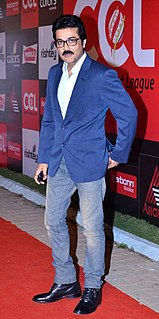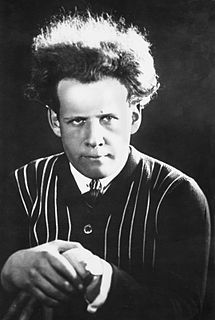A Quote by Prosenjit Chatterjee
When a director is remaking a film, he should tweak it, add Bengali sentiments to it and make it look like a regional movie. A copy-paste job is something I don't support at all.
Related Quotes
To me the only real star of the movie is the writer. And I work with writers very closely, from outline to first draft and on to the seventh draft, whatever it takes. Then my job is to support the director to make the best movie we can. Some producers try to go past them, but my job is to support them.
With a good script a good director can produce a masterpiece; with the same script a mediocre director can make a passable film. But with a bad script even a good director can’t possibly make a good film. For truly cinematic expression, the camera and the microphone must be able to cross both fire and water. That is what makes a real movie. The script must be something that has the power to do this.
Film works when a director and a star have a connection. You know, when there's something telekinetic between them, there's a partnership, it's like alter egos. It's like James Stewart and Alfred Hitchcock, or Fellini and Mastroianni. I'm not comparing, I'm just saying, if you can come into a relationship where the director and star have such a bond, it's so much easier to make a movie.
I don't think all films should necessarily look like they do on digital video. I think it cheats the audience, at some point. If you try to make an epic and you shoot it digitally, that doesn't make much sense. I think there's a certain kind of film that could be a "digital film." But it shouldn't be interchangeable with other films. It should be something more than just a capture medium. It should be a different form altogether, something new.
My teachers believe that the creative producer's job is to service the vision of the director, to stay within schedule and budget, and to get the studio what they need, but you work for the director to get their vision on the screen. That's not how everyone approaches producing, but it is certainly how directors like you to approach producing. How I was brought up is that my job is to help you make the movie you want to make.



































